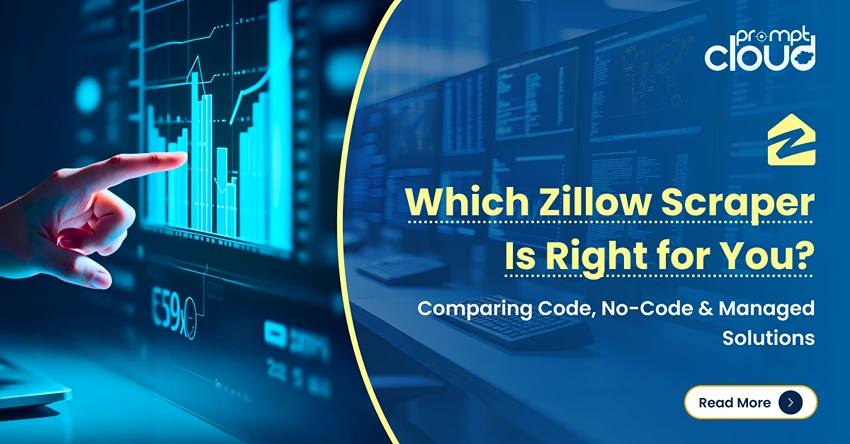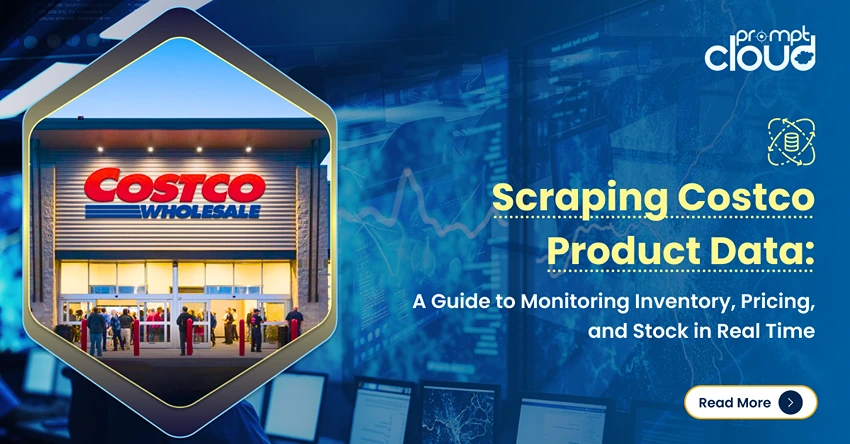eCommerce websites are often competing for high rankings on Google and other search engines. However, not all eCommerce website owners know how to use SEO data scraping services to optimize their site’s ranking. This blog post will help the reader understand how these tools work and why they’re important for optimizing an eCommerce site’s ranking in Google searches.
SEO data scraping is the process of extracting structured data from a larger body of unstructured text. This can be used to analyze and understand search engine ranking factors, get insights into competitor marketing strategies, or get an overview of industry trends.
This post will explain how SEO data scraping can help eCommerce website owners optimize their sites for better rankings in SERPS and increased sales. All you need is one simple tool: PromptCloud! Don’t let your site go unnoticed amongst the competition – download this free trial today and start crawling!

What is data scraping?
Data scraping is the process of extracting structured data from an unstructured source. It involves taking large amounts of raw data and converting it into a more concise, meaningful format to help companies make better-informed decisions about their business. When used with SEO, this technique allows you to extract information on your website’s ranking factors directly from Google SERPs.
Let’s say you own an e-commerce store and want to rank high in Google so more potential customers can find your website. The problem is, the only way to do this is to optimize for keywords that people are searching on Google. You can do this by working with a technology company like PromptCloud which will help you identify the best keywords for your website and how to optimize it for those keywords.
How does SEO data scraping work?
SEO data scraping is a process where you use PromptCloud’s tools in conjunction with Google Search Console to find the best keywords for your site, monitor rankings, and discover new trends in the industry. Your online marketing campaign will be more effective because you will have all the information at your disposal so you can make intelligent decisions about how to improve your site.
Building better meta titles and descriptions
Another use for SEO data scraping is to analyze competitor meta titles and descriptions. If you want to generate high click-through rates, you’ll need to craft the best meta title and description possible. It’s not enough to simply make sure these elements are filled out; they need to be compelling and descriptive.

One of the ways you can use SEO data scraping to your advantage is by identifying competitor products and studying their meta details. You will be able to find out how much other companies are charging for the same product, what keywords they’ve used in their meta title and other information that will be instrumental in helping optimize your own site’s ranking. You can provide better content to customers, create a more streamlined user experience, and offer additional products that will drive potential customers to your website. The main two places you should be crawling are the page title and meta description data.
Ecommerce product price Tracking
One way to optimize your eCommerce product rankings is by using price tracking. The old adage “you have to spend money to make money” couldn’t be more true when it comes to SEO data scraping. Using this tool, you can monitor the price of your competitors’ products over time so you know if their price is rising or falling. You can then adjust your own prices accordingly and optimize for better rankings. Price tracking is especially helpful for e-commerce sites that sell products that fluctuate in price based on market demand or seasonality.
Crawling product Reviews
Reviews are also an important factor in overall SEO ranking. Your website should appear as the first result when people type in certain keywords because it has all of the information they need on its products, or it provides useful content that helps them solve their problem. When you’re crawling your competitor’s reviews, you’ll want to look for common themes across the board. If a lot of customers are complaining about the same issue, that’s something you should take into consideration when optimizing your site’s content and meta information.
New product launch Alerts
Another way to use SEO data scraping is by setting up alerts for product launches. You can keep your eyes on the ball and be one step ahead of the competition by finding out when they launch a new product, what it looks like, and how much they charge for it. This will give you a chance to adapt your own products and pricing accordingly and ensure that your site still appears in search engine results pages.
Ecommerce product data augmentation
The more product data you have, the better your website will perform in search systems like Google. You can improve your site’s performance by using augmented product meta tags and other pieces of data. For example, you could include additional information such as:
- Product image
- Review count
- Category & subcategory
- Current sales rank
- Release date
- Weight and dimensions
Raw Data to run machine learning experiments
The main benefit of using a data scraping tool for e-commerce sites is the ability to collect raw data. This information can be used to run machine learning experiments and improve your site’s overall ranking based on customer feedback or other factors.
If you want your eCommerce website to rank higher, you need to make decisions based on proven SEO metrics. The more data you have at your disposal, the better. You can’t make intelligent decisions about how to improve your website if you’re flying blind. That’s why it’s critical to use SEO data scraping tools and crawl competitor websites.
Building better landing pages
You could also use the data you scrape to help improve your landing pages. You can analyze competitor meta titles and descriptions to see how they’ve optimized their own website, make comparisons, and find out if there are certain keywords you should be targeting. This will help you craft a more compelling message for customers about the products you offer.
Monitor and plan stock levels
SEO data scraping tools can also help you monitor stock levels and product prices. You can use this information to create price drop alerts. If your competitors’ products start selling better than yours, you’ll know right away so you can react accordingly. For example, you might want to increase the amount of stock on hand or lower your prices to compete.
Conclusion
If you want to build a better eCommerce website, there are plenty of ways that SEO data scraping can help. One way is by driving more traffic with better meta titles and descriptions for product pages. Another is building an alert system so your team will know when new products launch or prices change on the competition’s site. You might also be interested in crawling reviews from competitors’ sites, analyzing them using machine learning algorithms, and then use the information to create landing page content that converts prospects into customers who buy your brand.



















